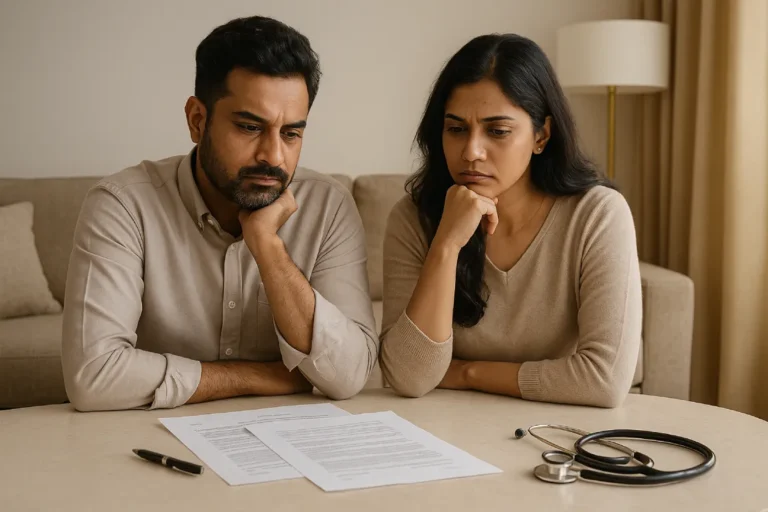Bigamy in India: Meaning, Laws, Punishment & Legal Consequences
Bigamy in India is a term that often sparks curiosity and confusion in legal, social, and cultural discussions. But what exactly does it mean? Simply put, bigamy meaning in law refers to the act of entering into a marriage with one person while still being legally married to another. In other words, if you’re already married and decide to tie the knot again without legally ending your first marriage through divorce, annulment, or the death of your spouse, you’ve committed bigamy in India. This act is a criminal offense across the country and carries significant consequences.
For anyone navigating relationships or remarriage, understanding bigamy in India is crucial to avoid legal pitfalls. Let’s dive into what bigamy in law entails, how it differs from polygamy, and why it matters.
Bigamy vs. Polygamy: What’s the Difference?

A common question people ask is: Is bigamy legal in India, and how does it differ from polygamy? While bigamy vs polygamy is often confused, they aren’t the same. Here’s the difference between polygamy and bigamy:
Bigamy in India:
Bigamy in India is the illegal act of entering a bigamous marriage, which means marrying someone while still legally tied to another spouse. It’s considered a crime under Indian law and often involves deception, with the second spouse typically unaware of the first marriage. So, is bigamy legal in India? No, it’s universally prohibited across the country, regardless of religion.
Polygamy:
Polygamy refers to marriage to multiple partners, a practice that is culturally or religiously accepted in some communities. For example, under Muslim personal law in India, a man can have up to four wives provided he treats them equally, although this practice is increasingly regulated. Unlike bigamy in India, polygamy isn’t always illegal, and its legality depends on the specific religious or cultural context.
The difference between polygamy and bigamy lies in intent and legality. Bigamy in India is always a crime, while polygamy may be permissible under specific conditions. Knowing this distinction can prevent unintentional legal violations.
Types of Bigamy in India: Intentional vs. Unintentional

Bigamy in India can occur in two main forms, each with its own implications:
Intentional Bigamy:
Intentional bigamy in India occurs when someone knowingly enters a bigamous marriage without dissolving their first marriage. This act is often driven by deceit, with the second spouse kept in the dark about the existing marriage, unaware of the legal and emotional implications of the situation.
Unintentional Bigamy:
Unintentional bigamy in India occurs when someone remarries, unaware that their first marriage is still legally valid, possibly due to an incomplete divorce or a misunderstanding of legal formalities. For example, an informal separation without a legal divorce can lead to unintentional bigamy in India, placing the individual in violation of the law despite their lack of intent.
Both types are illegal, but intent can influence the punishment for bigamy in India. Whether intentional or not, the law doesn’t take bigamous marriage lightly.
Why is Bigamy in India a Serious Issue?

Bigamy in India isn’t just a legal technicality it has deep social, emotional, and legal impacts:
Legal Concerns:
A bigamous marriage undermines the institution of marriage by creating legal and personal complications, particularly in areas such as inheritance, property rights, and child custody. Since the law does not recognize the second marriage as valid, it leaves the second spouse vulnerable, often without legal protection or rights in matters of succession and family disputes.
Social Fallout:
Deception in bigamy in India often leads to broken trust, emotional distress, and social stigma for all parties involved.
Ethical Dilemmas:
Marriage thrives on honesty. Bigamy in India violates these principles, raising moral questions.
Punishment for Bigamy in India: What Does the Law Say?

So, what is bigamy in law when it comes to penalties? In India, bigamy in India is governed by strict statutes:
Section 494 of the Indian Penal Code (IPC):
Section 494 of the IPC criminalizes bigamy. It states that if a person marries again during the lifetime of their spouse, the second marriage is void. The act is punishable with imprisonment for a term not exceeding 7 years, a fine, or both.
This is applicable to all Indian citizens, regardless of religion, are subject to this law.
Example: If a Hindu man remarries without divorcing his first wife, he can be prosecuted under Section 494, even if his second wedding was conducted under Hindu ceremony.
Hindu Marriage Act (Section 17):
Section 17 of the HMA reiterates the illegality of bigamy for Hindus, Buddhists, Jains, and Sikhs. It mentions that a second marriage while the first spouse is alive is not merely void but is also an offence under Section 494 of the IPC. This legislation specifically applies to Hindus and other groups covered by the HMA.
Example: If a Hindu woman remaries without lawfully divorcing her first husband, her second marriage is invalid, and she can be prosecuted criminally.
Muslim Personal Law:
According to Muslim personal law, a man may have four wives but must treat them equally. However, this practice is nowadays critically examined and regulated. Only Muslims are covered by this law.
Example: If a Muslim man remarries without the approval of his previous wife or without treating both of them equally, he can encounter legal issues, particularly under the Protection of Women from Domestic Violence Act.
Special Marriage Act:
The Special Marriage Act deals with inter-faith marriages and marriages where the parties are not interested in adhering to religious traditions. It clearly disallows bigamy. This law will apply to all Indian citizens, irrespective of religion, who decide to marry under this Act.For interfaith or secular marriages, bigamy in India is explicitly banned
Example: If a Christian man marries a Hindu woman under the Special Marriage Act, he cannot marry another individual without legally terminating the first marriage.
Consequences of Ignoring Bigamy Laws

Disregarding or misinterpreting bigamy laws can result in serious consequences, including:
Legal consequences:
Legally, bigamy is a punishable offense under Section 494 of the Indian Penal Code (IPC), which can lead to criminal charges against the person involved. The second marriage is considered void under the law, meaning it holds no legal validity. As a result, the second spouse may face significant hardships, including the loss of property rights, inheritance claims, and maintenance, leaving them in a vulnerable position with no legal protection.
Social Consequences:
Bigamy can have severe social consequences, leading to public shame and a significant loss of reputation. The revelation of an illegal second marriage often results in strained relationships with family and friends, causing emotional distress for all parties involved. Both spouses and their families may experience deep emotional trauma, affecting their mental well-being and social standing.
In addition to legal and social repercussions, bigamy also carries serious financial consequences. Those accused of bigamy may face substantial legal costs, fines, and prolonged court battles. Disputes over property and financial maintenance can arise, leading to financial instability and conflicts between spouses and their families.
Real-Life Example of Bigamy in India
Imagine this: Rajat marries Priya in 2015. They separated informally in 2020 but never divorce. In 2022, Rajat marries Anjali without telling her about Priya. Legally, Rajat has committed bigamy in India. His second marriage is void, and he faces prosecution under Section 494 of the IPC. This scenario highlights how ignorance or deceit can lead to a bigamous marriage and why legal clarity is essential.
Why Understanding Bigamy in India Matters

Whether you’re planning to remarry or curious about bigamy meaning in law, here’s why it’s vital to grasp bigamy in India:
Avoid Legal Trouble:
Bigamy is a criminal act in India, punishable under Section 494 of the Indian Penal Code (IPC). If you marry again without lawfully ending your first marriage, you may be liable for Imprisonment for a maximum of 7 years, Fine or Both imprisonment and fine.
Even if the bigamy was inadvertent (e.g., resulting from flawed divorce proceedings), the law is not discriminating regarding intent. Knowledge of the legal rules governing marriage and divorce will help you prevent such situations
To Ensure Legal Validity of Marriage
A marriage is not merely a religious or social union; it’s a legal agreement sanctioned by the state. If you marry again without legally dissolving the first one, the second marriage is void (invalid). This can create problems in Inheritance rights, Property ownership and Child custody and support.
Knowledge of bigamy laws will make your marriage legally valid and recognized, safeguarding your rights and those of your spouse.
To Guard Against Emotional and Financial Hardship
Bigamy is usually accompanied by deception, with one spouse not knowing about the other’s earlier marriage. This can result in emotional trauma to both spouses, broken relationships and trust and financial conflicts regarding property, maintenance, and inheritance.
You can make informed choices and steer clear of situations that end up causing emotional and financial woes by knowing bigamy laws.
To Understand the Intricacies of Marriage and Divorce
Indian marriage and divorce laws are different depending on religion and personal laws. For instance:
- Hindus are subject to the Hindu Marriage Act (HMA).
- Muslims are subject to Muslim personal law.
- Christians are subject to the Indian Christian Marriage Act.
- Interfaith marriages are subject to the Special Marriage Act.
Knowledge of these laws assists you to go through the intricacies of marriage, divorce, and remarriage in accordance with legal provisions.
How to Ensure Compliance with Bigamy Laws in India

To steer clear of a bigamous marriage, follow these steps:
1. Verify Your Marital Status
Prior to remarrying, make sure that your former marriage has been dissolved legally by way of divorce or annulment. Get a certified copy of your divorce decree or your former spouse’s death certificate.
2. Consult Legal Advice
If you are doubtful about your marital status or remarriage legalities, meet a lawyer. They will assist you through the intricacies of marriage and divorce laws.
3. Get Registered Marriage
In India, it’s not a mere formality to register your marriage; it’s mandatory. A registered marriage serves as evidence of your marital status and safeguards your rights.
4. Be Transparent
Honesty is the best policy to establish trust in a relationship. Be honest with your prospective spouse regarding your marital background to avoid confusion and legal issues.
Conclusion: Stay Informed, Stay Legal
Bigamy in India is more than just a legal term, it’s a serious offense with lasting consequences. At Aditya & Co. Advocates, we often come across individuals seeking clarity on bigamy vs. polygamy, the legal definition of bigamy, or wondering is bigamy legal in India. The answer is straightforward: bigamy is a punishable crime under Indian law, with no exceptions. Understanding the difference between polygamy and bigamy and the punishment for bigamy in India is essential to safeguarding your rights and future.
If you’re uncertain about remarriage, suspect that your spouse is involved in a bigamous marriage, or need legal assistance in handling such matters, our team of expert divorce lawyers in Bangalore is here to guide you. At Aditya & Co. Advocates, we specialize in resolving marital disputes, inheritance conflicts, and legal challenges related to bigamy. Consulting a knowledgeable lawyer ensures that your marriage is both legally valid and secure because your peace of mind matters. Reach out to us today for expert legal support tailored to your needs.







